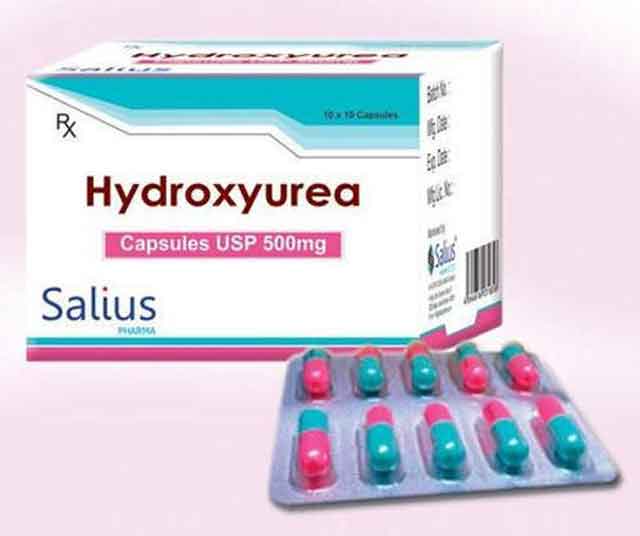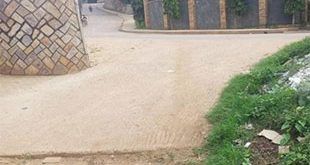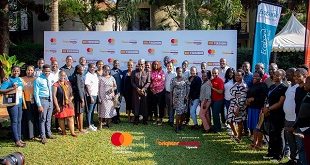
Gulu, Uganda | THE INDEPENDENT | Caretakers of sickle cell anemia patients in Gulu district have decried what they call the prohibitive price of hydroxyurea, a drug believed to greatly reduce painful episodes in people with sickle cell. Sickle cell is an inherited blood disorder that causes red blood cells to form the shape of a sickle, hence, affecting its easy flow through the veins, leading to pain.
Hydroxyurea has been used in managing sickle cell among adults since the 1980s. In 2017, the Ministry of Health approved it for use by children, whose crises occur several times a year, have acute chest pain, and are at risk of getting a stroke.
According to medical experts, hydroxyurea makes the red blood cells rounder, bigger and flexible, hence, reducing pain, frequencies of acute chest syndrome and blood transfusion. However, families taking care of persons with the condition, say the price of the drug stops many from starting using the drug or using it consistently.
A capsule of hydroxyurea costs between Shillings 1,000-2000 for the 250mg, while the 500mg can go as much as Shillings 3,000. A patient is supposed to take a tablet each day, alongside other prophylaxes such as folic acid and penicillin.
Sandra Adokorach, a resident of Gulu City has a child with sickle cell. She reveals that she has interacted with parents who say much as they want to enroll their children on the drug, the price discourages them.
Adokorach suggests that since hydroxyurea is a wonderful drug and is recommended to be taken daily, it should be made as cheap as folic acid. A tablet of folic acid in Gulu City costs between Shillings 50-100, depending on the hospital or drug outlet.
Adokorach, whose child started taking the drug two years ago, says she saw a lot of improvement in her daughter. She says she is lucky that the expenses for her daughter’s drugs are being covered by the health insurance given by her workplace but is worried that she will be in a dilemma when something happens that disqualifies her daughter from using the insurance.
Adokorach also notes that not many people may be aware of the drug, because doctors only talk about it when a patient or caretaker probes or after judging from someone’s appearance, that they can afford it.
Lucy Akwero, a resident of Laroo in Gulu city has a granddaughter suffering from sickle cell. She says although her grandchild is not on hydroxyurea yet, doctors tell her that they might give her the drugs if her crises become regular. Akwero is worried that they might not be able to afford the drugs, adding that some people started on the drugs and stopped.
“I have heard testimonies about the goodness of the drugs from those using it. But there comes a time when they cannot keep on buying it because it is expensive,” Akwero said. The expense is even higher if a family has more than one person suffering from sickle cell. James Okello, a farmer in Koro Lajwatek in Gulu city has two children suffering from sickle cell, who enrolled for treatment at St. Mary’s Hospital Lacor, a private health facility, which sells drugs.
Okello’s children suffer frequent chest and abdominal pain. Although he has been advised to start buying the drugs, he says he cannot afford it for both children, who are nine and twelve years. Okello said according to the doctor, his children now need to take 500mg of the drug daily, and each capsule costs Shillings 3,000. Meaning, Okello has to part with at least Shillings 180,000 monthly for the drugs.
“The price is just too high for me. If this drug is really good as people say, then why don’t they make it affordable? I have just decided to keep giving them folic acid and Pen V because I don’t want to start buying a drug that I can’t sustain,” Okello said.
At Gulu Regional Referral Hospital, only 45 children out of 944 patients registered at the sickle cell clinic are enrolled on hydroxyurea. Dr. Florence Oyella, the head of the pediatric department at the hospital, said all the children on hydroxyurea get the drugs for free, but adds that if there was enough sensitization about sickle cell, many patients would be enrolled and the drugs would not be enough for all.
She says parents would not be able to afford them, given that majority come from poor economic backgrounds. Dr. Oyella reveals that because of a lack of knowledge, some families in the sub-region have as many as four children with sickle cell. This implies that such families will suffer a huge financial burden if the children are all put on hydroxyurea.
In October 2020, Dr. Robert Opoka, a researcher based at Makerere University, called for open access to hydroxyurea by all persons with sickle cell disease. About 33,000 babies are reportedly born with the disease annually in Uganda.
However, 80 percent of these die before the age of five due to disease complications, while about 16 percent of early infant mortality in the country is attributed to the disease, according to the Ministry of Health figures. Northern Uganda tops the list with the highest prevalence of sickle cell traits at 18.6% followed by Mid-East at 16.7%.
********
URN
 The Independent Uganda: You get the Truth we Pay the Price
The Independent Uganda: You get the Truth we Pay the Price



